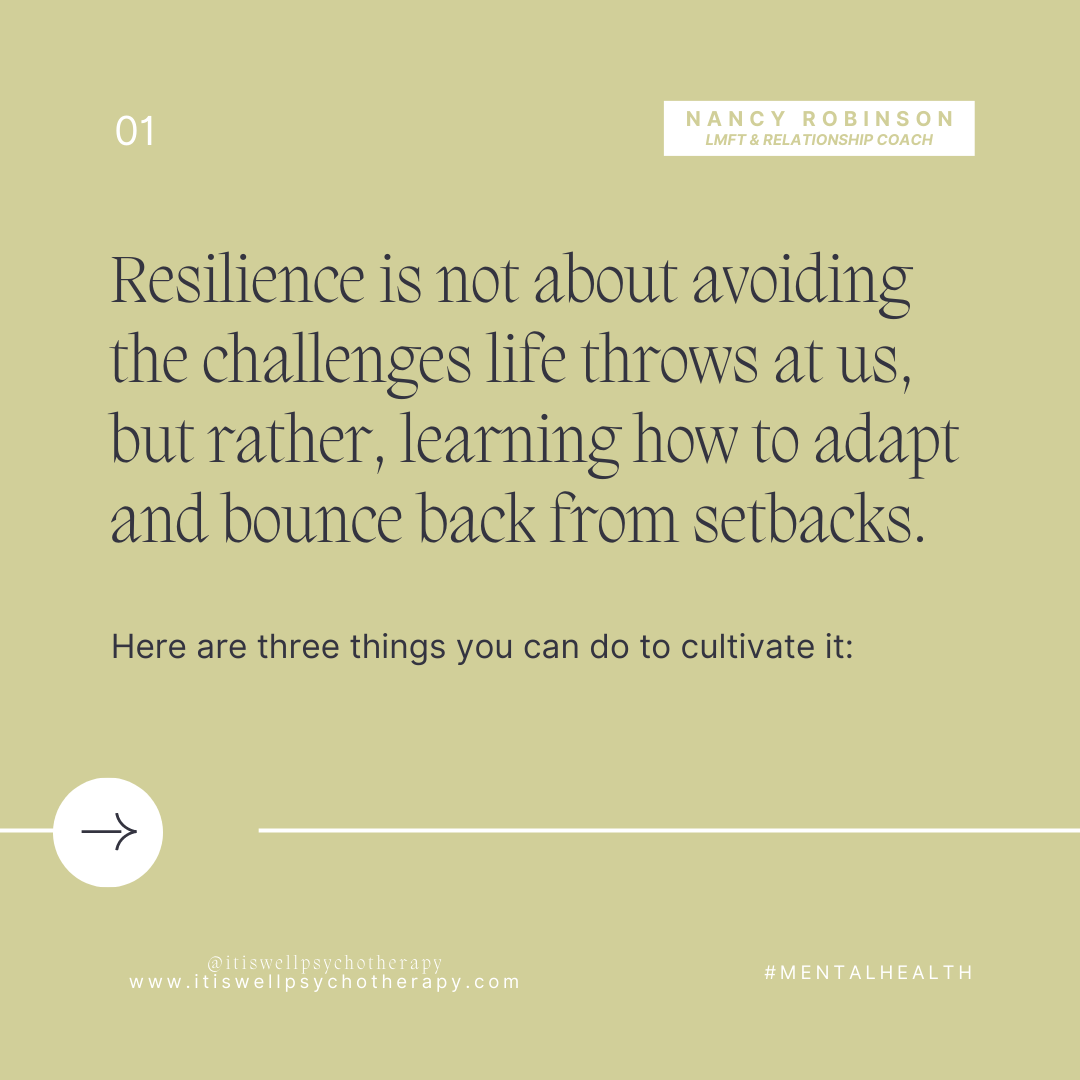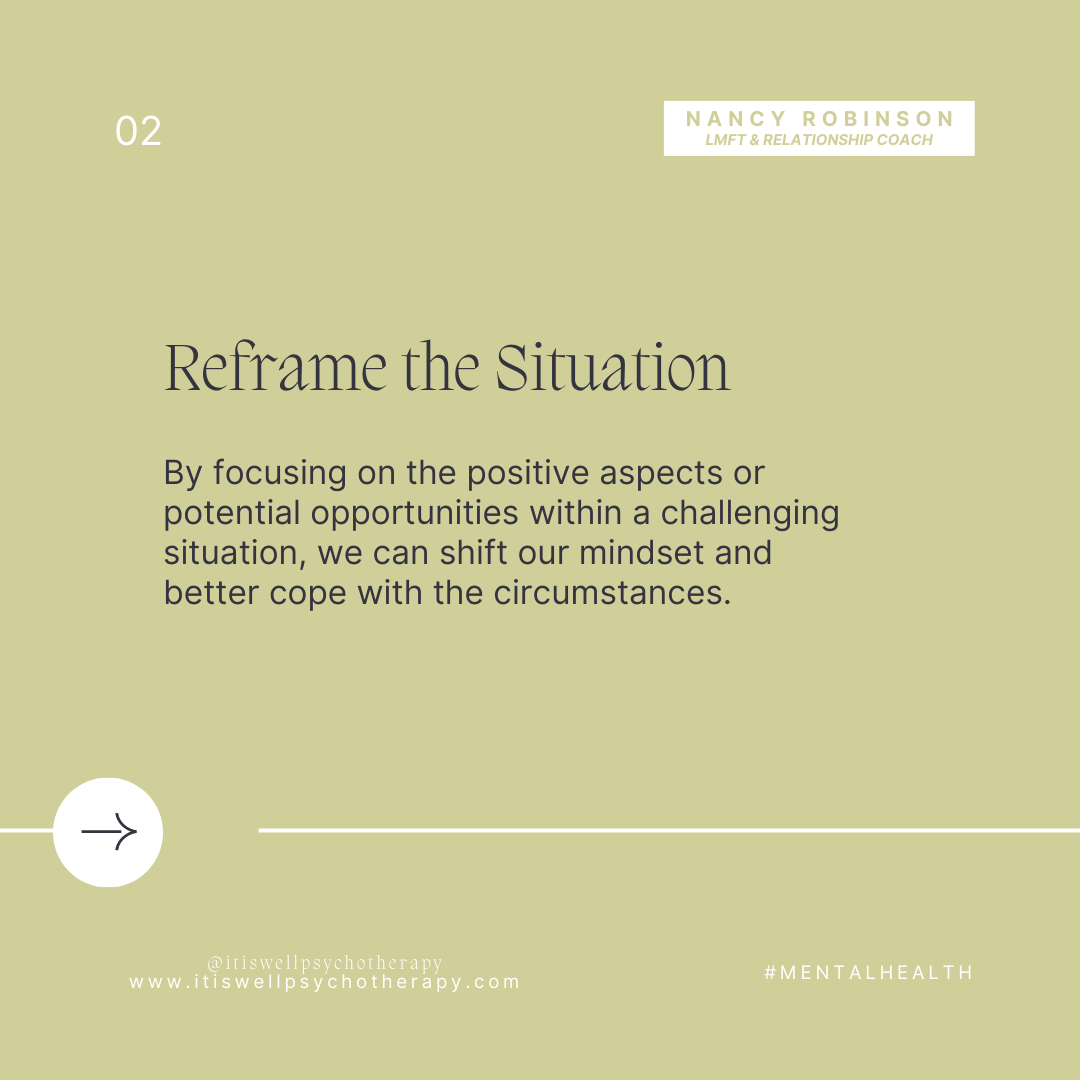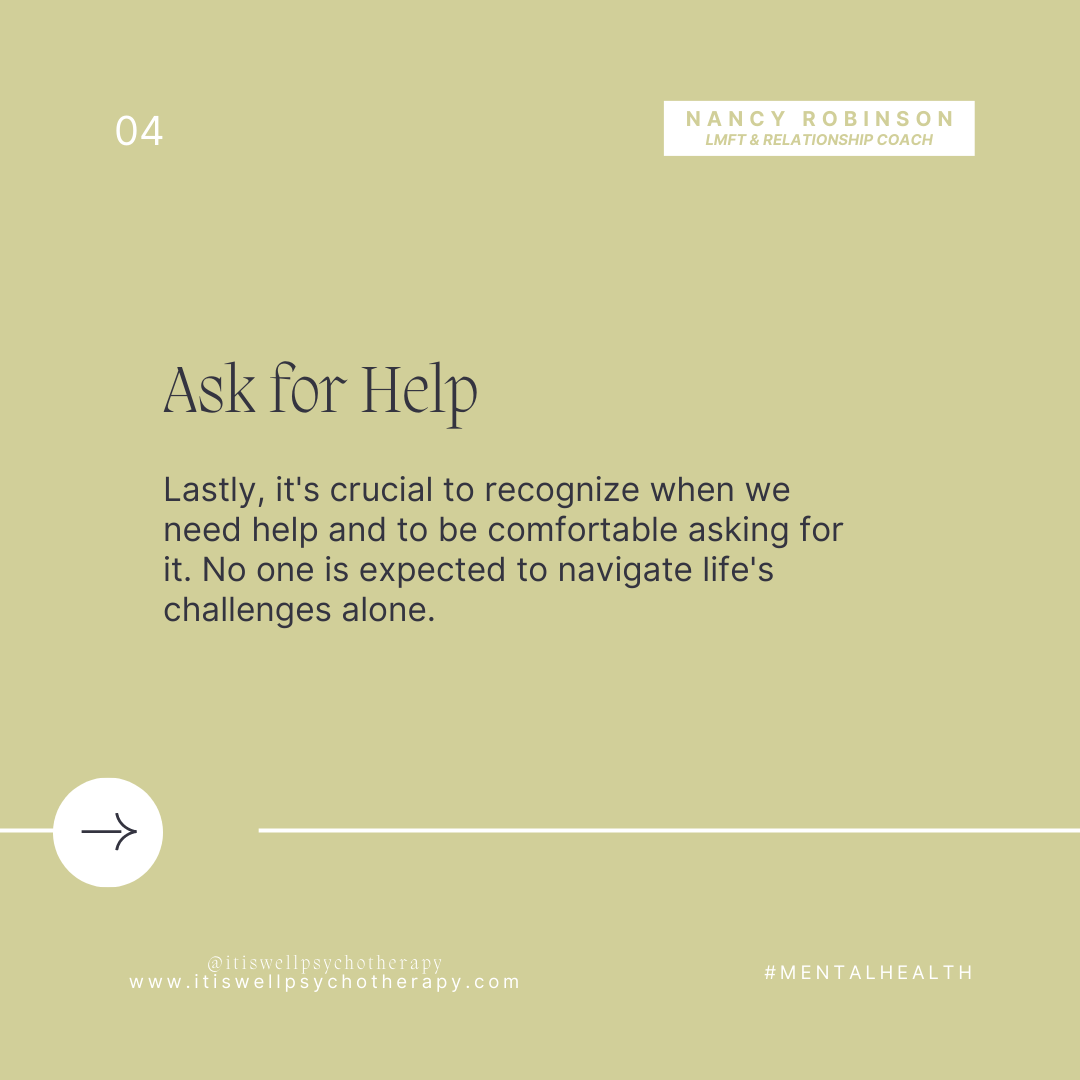How To Build Resilience
Aug 30, 2023
Hey Friends,
Resilience is not about avoiding the challenges life throws at us but rather learning how to adapt and bounce back from setbacks. It's about embracing the fact that, sometimes, things just don't go as planned.

But how do you cultivate it?🤷♀️
There are three things you do:
1. Reframe the situation: Reframing is a powerful tool that allows us to change our perspective on a situation, thereby altering our emotional response to it. 🖼️ By focusing on the positive aspects or potential opportunities within a challenging situation, we can shift our mindset and better cope with the circumstances. So, the next time life throws you a curveball, take a step back and ask yourself: "What can I learn from this?" or "How can I grow as a result of this experience?" 🌱

2. Adopt healthy coping strategies: Engaging in activities that help you relax, such as meditation, exercise, or pursuing hobbies, can provide relief from stress and increase your ability to bounce back. 🎨🏃♀️ Remember, taking time for self-care is not a luxury; it's a necessity for maintaining your well-being during tough times.

3. Ask for help: Lastly, it's crucial to recognize when we need help and to be comfortable asking for it. No one is expected to navigate life's challenges alone. 🤝 Reach out to friends, family, or even a professional for support, guidance, or just a listening ear. By seeking help when needed, you're not only building resilience but also strengthening your connections with others.

Resilience is an important trait and skill for individuals to develop for several reasons:
-
Adaptation to Change: Resilience enables individuals to adapt to and bounce back from adversity, change, and unexpected events. In a rapidly changing world, the ability to adjust and thrive in different circumstances is crucial.
-
Mental Health: Resilience is closely linked to mental health and well-being. Resilient people tend to experience lower levels of stress, anxiety, and depression. They are better equipped to cope with life's challenges, reducing the risk of mental health issues.
-
Emotional Well-being: Resilience helps individuals manage their emotions effectively. It allows them to process and recover from setbacks, losses, and disappointments without getting overwhelmed by negative feelings.
-
Positive Relationships: Resilient individuals are often better at maintaining positive relationships. They can handle conflicts and setbacks in relationships with greater ease, which contributes to healthier and more lasting connections with others.
-
Achieving Goals: Resilience is essential for achieving long-term goals. It helps individuals stay focused, motivated, and persistent, even when faced with obstacles or setbacks along the way.
-
Enhanced Problem-Solving: Resilient people tend to approach problems and challenges with a more optimistic and solution-focused mindset. This can lead to more effective problem-solving and decision-making.
-
Improved Physical Health: Resilience is associated with better physical health outcomes. People who are resilient are more likely to engage in healthy behaviors and take care of their bodies.
-
Professional Success: In the workplace, resilience is highly valued. It enables individuals to handle job-related stress, setbacks, and changes more effectively, ultimately leading to career success and advancement.
-
Community and Societal Benefits: Resilient individuals can contribute positively to their communities and society as a whole. They are often more willing and able to help others in times of need, fostering a sense of unity and support.
-
Happiness and Life Satisfaction: Resilience contributes to overall happiness and life satisfaction. When individuals can navigate life's challenges and setbacks with resilience, they are more likely to lead fulfilling and meaningful lives.
Resilience is essential for personal growth, well-being, and success in various aspects of life. It empowers individuals to face adversity with strength and determination, ultimately leading to a more fulfilling and balanced life. Developing resilience is an ongoing process that can be nurtured and strengthened over time through self-awareness, coping strategies, and support from others.
How have you built resilience in your own life, or what strategies have helped you during difficult times?
🚨 Spreading Wellness Challenge 🚨
Send this blog link to at least 2 people you care about so that they can have a chance to increase their wellness too! 🔌✨
Stay connected with me here:
https://linktr.ee/itiswellpsychotherapy
➡️ Workbooks, Journals, & Worksheets Here! ⬅️
© 2023 | Nancy Robinson, LMFT & Relationship Coach & Its Affiliates | All Rights Reserved.
SUBSCRIBE FOR WEEKLY LIFE LESSONS
I share free resources, exercises, and guidance to help you live your best life.
I email about once a month, and I will never sell your information, for any reason.